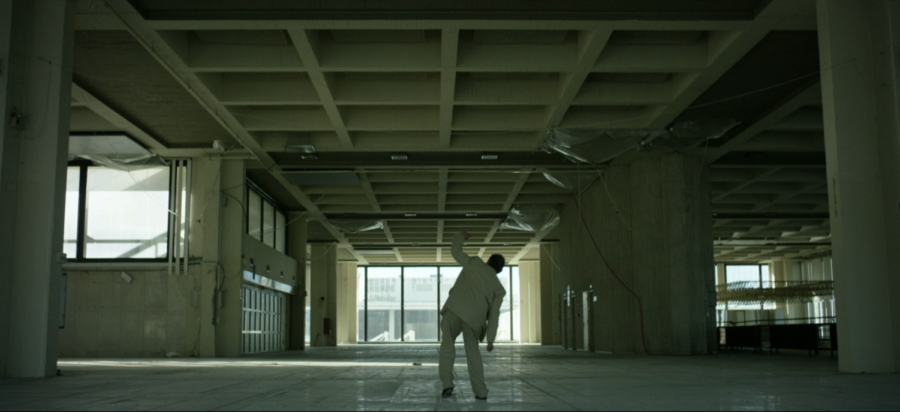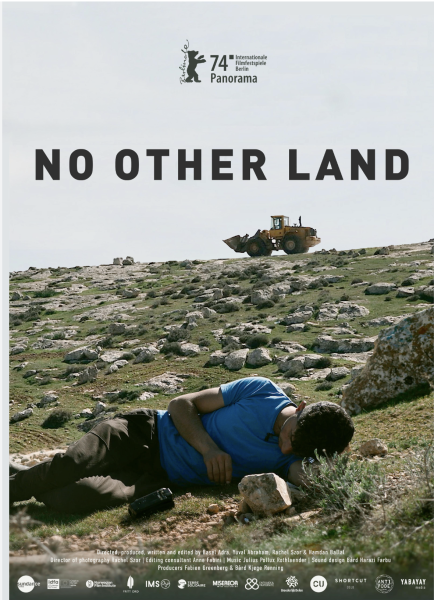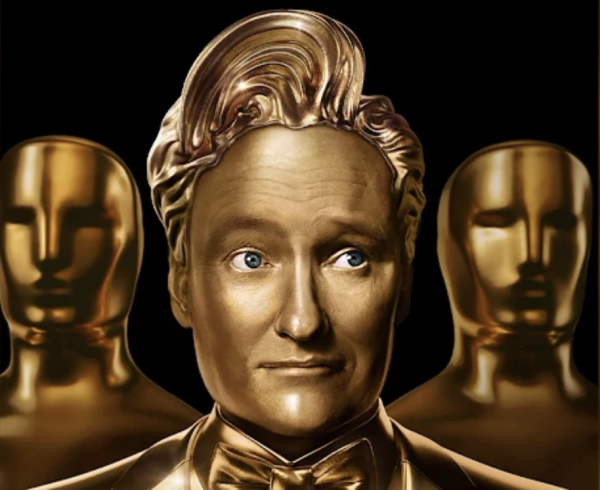moCa’s “Monday, Day 3753” Offers COVID Catharsis
Tripoli Cancelled stars Vassilis Koukalani as a nameless man who has been living in an airport for a decade.
When we visited Monday, Day 3753, an exhibition at the Museum of Contemporary Art, Cleveland featuring work by Naeem Mohaiemen, OC ‘93, we expected to be transported to an unfamiliar world. We were indeed transported by the exhibition’s two galleries — one a theater screening Mohaiemen’s 2017 film Tripoli Cancelled, and the other a space featuring photographs from the set — but to somewhere eerily familiar. Monday, Day 3753 both reflected and compounded our own experiences of the last year.
Courtenay Finn, chief curator at moCa Cleveland, first came upon Mohaiemen’s work in 2017, while visiting an exhibition curated by Peter Eleey at MoMA PS1 in New York. She had gone to see another show at the same museum, but ended up missing it because Tripoli Cancelled was so enrapturing. Instead of visiting the rest of the museum, Finn watched the whole 93-minute film, right up until the museum closed for the day.
One of Finn’s goals in exhibiting the film and accompanying photo exhibition was to bring that engrossing experience to moCa visitors. While COVID-19 presented practical challenges, its context also added a new dimension to the film’s depictions of routine and isolation.
“It was supposed to be shown in the summertime, and that got rescheduled because of COVID and the way that the museum’s entire schedule got upended,” Finn said. “And actually, my perspective on it also shifted. I felt like I saw the film through different lights and different touchpoints, showing it at this moment in time.”
Tripoli Cancelled’s air of uncertainty and solitude does feel uncannily prophetic of the socially-distanced age. The film centers around an unnamed man, played by Iranian-Greek actor Vassilis Koukalani, living in an abandoned airport for reasons that remain unknown to viewers. Lingering shots that alternate between wide angles and closeups guide the audience through this lonely man’s daily drawl. Koukalani’s isolated role had to carry the whole film — and he was up to the task.
“When I found the deserted landscape in front of me and was asked to play and dramatically exist there I felt a little uncanny and helpless,” Koukalani wrote in an email to the Review. “Would it be possible to profile a man’s life in this overwhelming and desperate view?”
Koukalani’s performance answers this question with a resounding “yes.” The dual comfortability and tension of his body language as he navigates the airport portrays a haunting, reluctant familiarity with his surroundings. Overlaid monologues also allow Koukalani to create a voice for his character, at points wistful, nostalgic, and sorrowful. He is the only mobile, energetic element of the otherwise static setting. This juxtaposition is epitomized by the film’s title screen, in which Koukalani’s character calmly smokes a cigarette in front of the airport terminal in a vast and detritus-ridden airfield as the words Tripoli Cancelled appear above him.
The story and location made the experience of portraying this character deeply personal to Koukalani.
“When I saw the abandoned airports in Ellinikon, memories came from all the years since childhood in which I was often forced to fly to or away from Athens or even passing through — Teheran to Heraklion, Heraklion to Germany,” Koukalani wrote.
His performance also allowed the film to explore a number of critical, relevant themes.
“Vassilis Koukalani (whose identity cannot be clearly placed) not only represented his father’s story but even more, becoming a figure that allowed Naeem, through him, to transgress clear-cut nationalities, topographies, and time distinctions, creating a film that literally cuts through borders to talk about them,” Tripoli Cancelled’s Greek Onsite Producer Maria-Thalia Carras wrote in a message to the Review.
The film was shot in the abandoned Ellinikon International Airport in Athens, Greece, which takes on an identity of its own, almost becoming a second character off of which Koukalani could play.
“This dumped and emptied area,” wrote Koukalani, “which was public property and is now neglected and sidelined, waiting for the calculations and computations of speculators to be turned into shopping malls or other paved entertainment, is in a state of limbo.”
Tripoli Cancelled’s cinematographer, Petros Nousias, also found the idiosyncratic setting to be a major inspiration for expanding the film’s purview.
“It soon became evident that this airport wouldn’t be just the location for our script, but also a constant inspiration for new scenes that took what started as a short film and turned it into a feature-length one,” he wrote in an email to the Review.
The resulting film becomes a conversation between a man and his world, as he interacts with his environment both symbiotically and with great conflict.
“Everything is dusty and dilapidated, but [the protagonist’s] suit is pressed and clean, and he still has food,” Finn said. “From the beginning, that dichotomy was something that really drew me in. I also feel like [Koukalani] as an actor is so expressive, and the camera really centers on him through the whole film.”
For the two of us, experiencing the exhibition was also about experiencing a museum amidst a pandemic. While moCa takes many rigorous safety precautions, an institution cannot account for its patrons at all times. We as viewers were made acutely aware of our own surroundings in the film’s moderately sized screening room when a man behind us took off his mask, forcing us to make a hasty and unceremonious exit.
But as much as COVID ruins everything, our experiences of the pandemic enrich the film’s subject matter too. The protagonist’s tendencies to create small routines to keep himself sane and entertained may have once been alien to viewers, or a cause of pity. In a post-quarantine reality, the protagonist’s self-soothing game of rolling up paper balls to throw at the permanently frozen departure sign inspired bone-deep empathy. At this moment, Tripoli Cancelled cuts across time and becomes a critical site for people to reflect on loneliness, aimlessness, and liminality. Because of that Tripoli Cancelled isn’t just a film worth watching — it’s a film that is important to watch.
But how do we reconcile that importance with the maskless man in the back? Digital museum-going provides one possible answer. While nothing can replace the embodied experience of visiting a museum, moCa has created opportunities to engage with its exhibitions and their subject matter outside of the physical setting.
Lauren Leving, curator of public programs at moCa Cleveland, worked with Mohaiemen to organize and facilitate speaker events and panel discussions at both Oberlin and Kent State University that take Monday, Day 3753 beyond the limits of the exhibition.
“[Mohaiemen] is really involved and interested in working with Oberlin –– he went to Oberlin –– and also Kent State; he’s interested in creating these partnerships,” Leving said. “I proposed a couple of lecture format programs depending on his availability, and he tweaked them, and we created proposals that way. We’re going back and forth. We’re still in the planning stages, but he’s interested in creating a lecture and discussion based on storytelling and when storytelling goes awry with two of his Tripoli Cancelled collaborators.”
Leving, along with Thoma Education Fellow Melissa Kansky, helped establish an education and engagement committee to design programs that relate to the shows at moCa as well as support the community in the ways that they find most necessary. The committee is composed of 10 locals from Cleveland, with whom Kansky and Leving share some background information and questions about the exhibition. They then design programs out of those conversations, which also allow pieces of the shows to be shared virtually. An upcoming program related to Monday, Day 3753 will focus on dreams and dream psychology, key themes in the film’s contention with freedom — they even plan to bring in a Jungian psychologist and dream analyst.
That event, “When we fall asleep, where do we go?” will take place on May 5 at 6 p.m. Registration is required. “Best Laid Plans,” a storytelling workshop for Oberlin College students with Nousias, Carras, and Mohaiemen, will be held on April 14; registration information is forthcoming.











